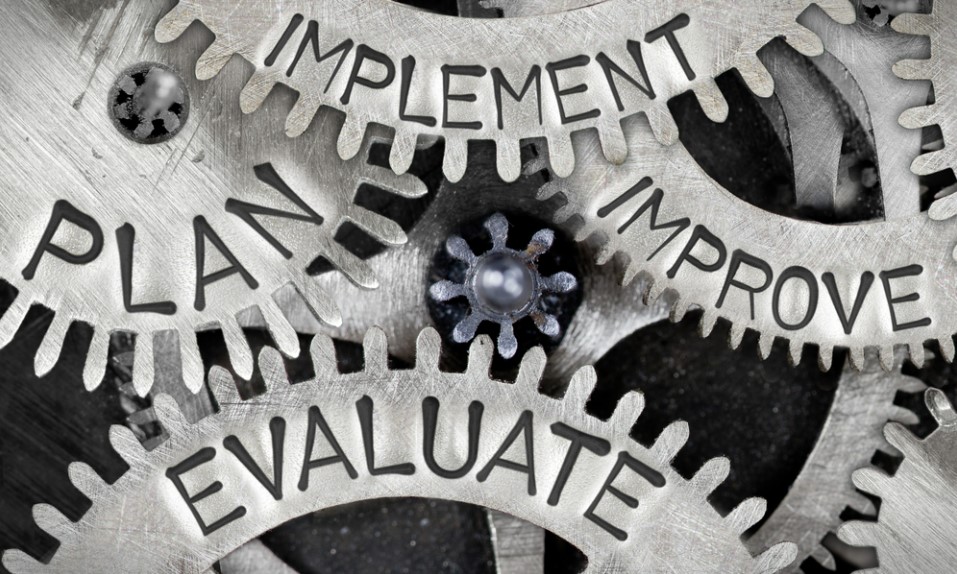Posted by jmeyer on December 8, 2022
Discover the best tips for mentor evaluation and assessment across the lifetime of the mentoring relationship. Learn how recurring assessment of mentors and mentoring relationships can improve the safety, stability, and efficacy of your mentoring program.

Mentors’ knowledge, skills, and attitudes throughout the life of a mentoring relationship are one of the keys to the success of any mentoring program. Together, they provide the conditions for creating the impact your organization strives for. But, to do this, mentors need proper training and, importantly, ongoing guidance and support. Mentor evaluation, assessment, and ongoing training can help mentoring programs be more effective and help mentees reach their goals.
Mentoring programs need to be thoughtfully planned out from the start, including creating actionable and realistic policies to support use of state-of-the-art practices. The important relationships between mentors and mentees will not happen without these guidelines, requirements, and program practices. Research has shown that mentoring programs using research-based standards in the field have a more positive effect on youth and longer-lasting mentoring relationships.
A carefully developed and researched resource created for mentoring programs to support the use of best practices and research-based practices is the Elements of Effective Practice (EEPM), published by MENTOR/National Mentoring Partnership. There are six standards for the field that follow the life cycle of a mentoring relationship that contain well-justified activities that highly functioning mentoring programs should implement. The standards include recruitment of mentors and mentees; screening of mentors and mentees; training of mentors, mentees, parents, or guardians of mentees; matching; monitoring and support; and closure.
Mentor evaluation should be integrated into all six standards and be conducted on an ongoing basis to determine who, when, and what support mentors need. Much has been written about the recruitment, screening, orientation, and training of mentors — in other words, the onboarding of volunteers into a mentoring program; however, far less has been written regarding the need for and benefits of monitoring and support once the relationship has commenced. The EEPM has a whole chapter related to this fifth standard, and we’ll focus on monitoring and support here.
In order to provide support to mentors and monitor the success of the matches in your program, it is critical to develop and communicate about your goals and objectives for matches and mentees participating in your program. These goals need to be SMART, meaning they are Specific, Measurable, Achievable, Relevant, and Time-bound. For example, if your program sets the goal for your mentees to do better in school, this goal is too vague. What do you mean by better? Do you want mentees to do better in all subject areas or in a specific subject? Is that a relevant goal for all mentees in your program, and is it what they want? When do you want this goal to be achieved? Similarly, if your program encourages each mentor and mentee to set goals for the mentee, mentors will likely need some help in this process. Both mentors and mentees may benefit from training on how to set SMART goals.
Your mentoring program may also have requirements and goals for matches regarding their frequency and length of meetings. You may also have specific activities or tasks that you want matches to accomplish together. Giving mentors and mentees mini goals can help guide them through your program. Below are a few ideas for supporting match requirements.
Through ongoing support, you can identify any challenges or barriers to matches meeting at the minimum frequency or duration required by your program, as well as mentors and mentees developing a strong and supportive mentoring relationship. Importantly, through regular meetings with mentors, mentees, and the parents or guardians of mentees, mentoring programs can take the pulse of the relationship to evaluate whether the relationship is growing in a strong, supportive, and positive direction and potentially fend off any impending challenges to the health of the relationship.
Conducting annual or biennial program self-assessments is an effective tool to provide your program with insights into areas where your program might benefit from growth or modifications. In fact, the benchmark practices that compose the six standards in the EEPM can be measured and quantified using a web-based questionnaire called EQUIP (Elements Quality Improvement Process questionnaire). Mentoring Central’s EQUIP can help pinpoint areas of strength in program practices, as well as those that need improvement or modification. EQUIP breaks down EEPM’s six core standards into four prioritized categories: practices that support the physical safety of mentees, practices that support the emotional safety of mentees, research-based practices, and program enhancements that are not yet research-based. By breaking practices into these four categories, programs can more readily prioritize their program quality improvement planning.
Data can not only help monitor the success of programs but can be used to report progress to stakeholders and as information in funding requests. Through repeated and regular program evaluations, and match and mentor evaluations mentoring programs can use limited resources to plan for continued progress and growth.
Mentoring Central’s assessment is based on the most researched standards of mentoring. EQUIP is uniquely formulated to help programs identify where work needs to be done and can include working with your team to create a quality improvement plan. A few other benefits of Mentoring Central’s EQUIP include:
For more helpful tips and the latest news in the mentoring realm, subscribe to our newsletter.